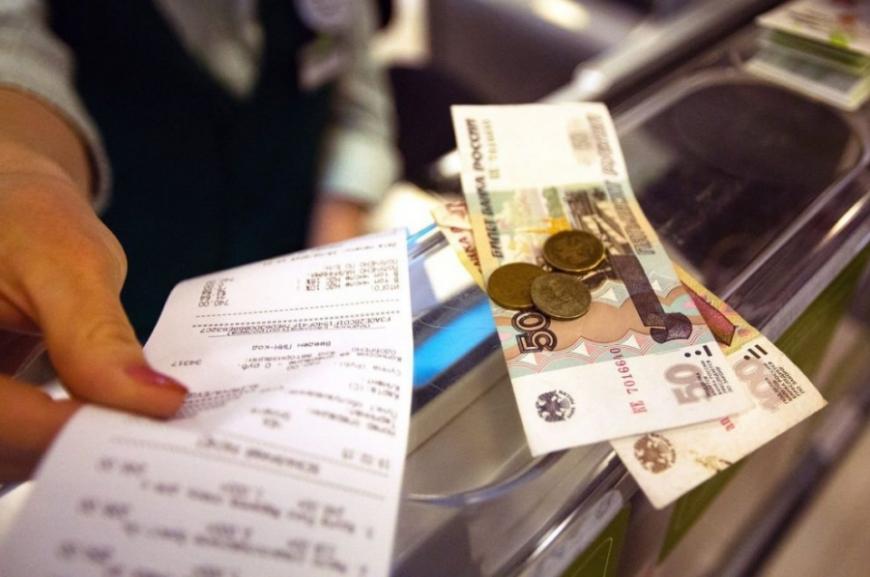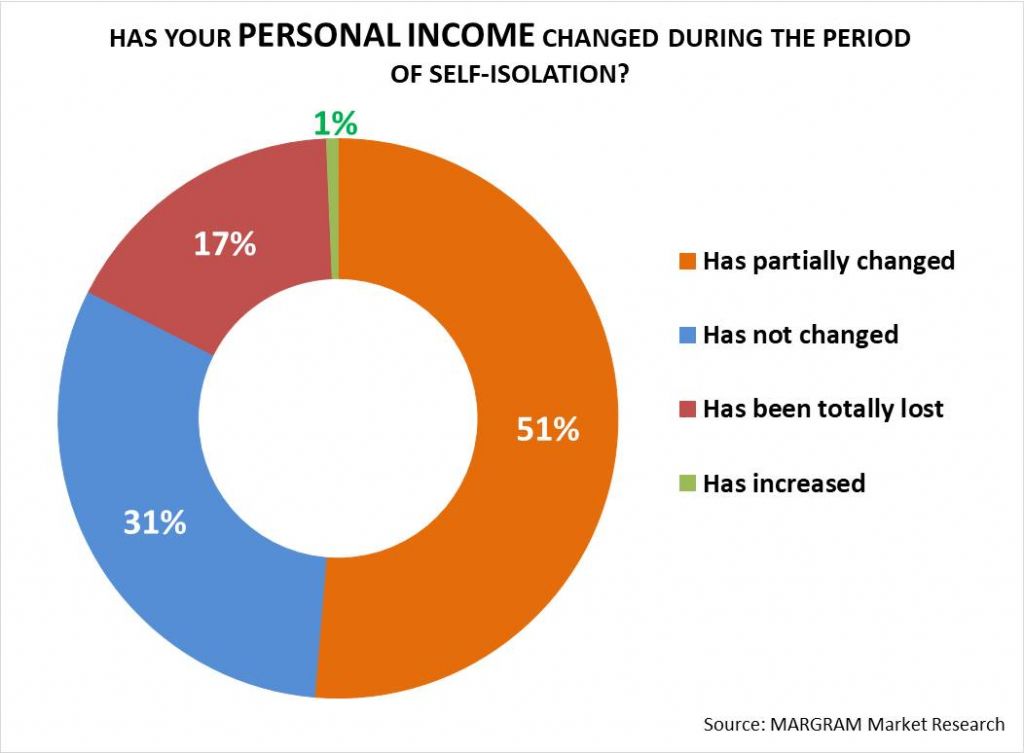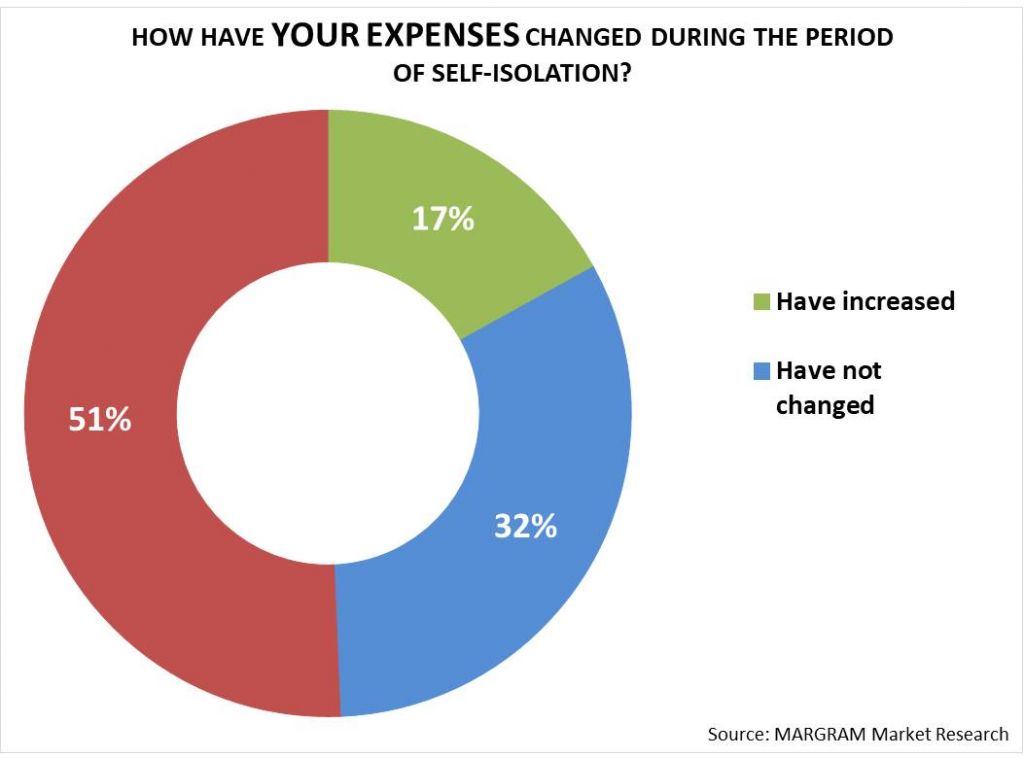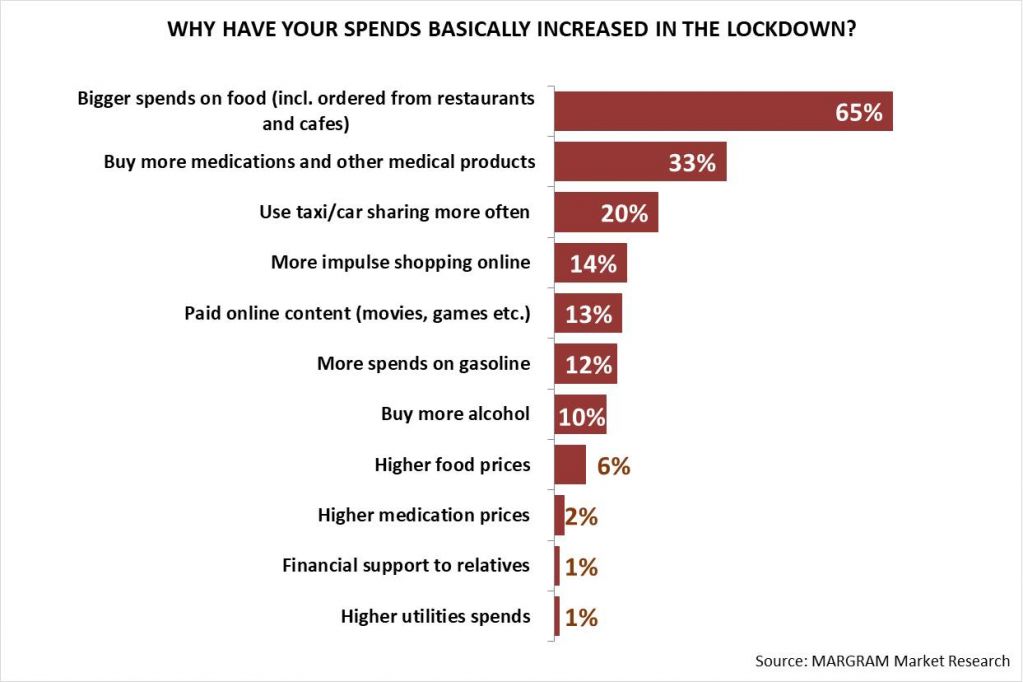68% of Russians Mentioned Income Decrease in the Self-Isolationn
Self-isolation: how gains and losses of Russians have changed, what they have saved with, and what spends have grown

According to the obtained data, a half of Russians (51%) mentioned partial reduction of their gains in the lockdown. One third of the respondents (31%) have the same income, while 17% have lost their profit totally. 1% of the respondents mentioned increased income.

Spends of Russians have changed too, moreover in the same proportions: 51% mention reduction, 17% - increase, and 31% — no changes.

The group of the respondents with decreased spends (51%), mentioned the following reasons:
• 55% stopped buying clothes, footwear, cosmetics and other products of the category;
• 47% began to save with regular spends, which are unavailable now (restaurants, cafe, cinema, theatre, fitness clubs etc.);
• 40% became cost-conscious incl. food, «as we have difficult times and it is better to save for the future»;
• 30% mentioned lower transport spends, as they have to stay at home;
• 1% saved on utility payments and clubs & leisure activities.
(multiple answers)
In Moscow, where the lockdown was announced earlier and was more strict vs. the regions, giving up clothes, footwear, cosmetics was mentioned by a significantly bigger segment of respondents — 78% (vs. 55% in the total sample).
However the less number of Moscow citizens is cost-conscious, «including food, as we have difficult times and it is better to save for the future» — 27% (vs. 40% in the total sample).
Vice versa the respondents, who registered their growth of income (17%), mentioned the following reasons:

(multiple answers)
Natalia Turunova, Executive Director, MAGRAM MR believes, the increased spends’ items might be split into three main categories:
"The first and the key one is stress killing, i.e. bigger spends on food, incl. ordered from restaurants and cafes, alcohol and increased number of impulse shopping online.
The second one is health. It is obvious that the fear to get sick made people take extra measures — buy more medical products, incl. masks and preventive medications.
And finally, providing safe transportation, i.e. spends on gas and taxi/car sharing.
It is interesting, that higher food and other product prices were mentioned by a small number of respondents. It proves that most probably in spite of the ruble devaluation in March and numerous price boom forecasts, the actual price growth turned out to be not so heavy for the users".
The research, i.e. an online survey, was held in mid May 2020. The survey covered people from big cities with the population over 100 thou across all federal districts of the Russian Federation. The total of 949 respondents at the age of 25-65 y. o. participated in the research. The sample’s gender and age structure reflects the structure of the urban population of Russia.